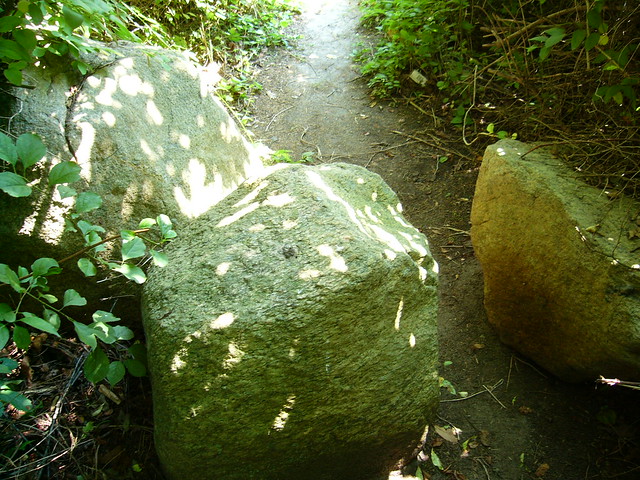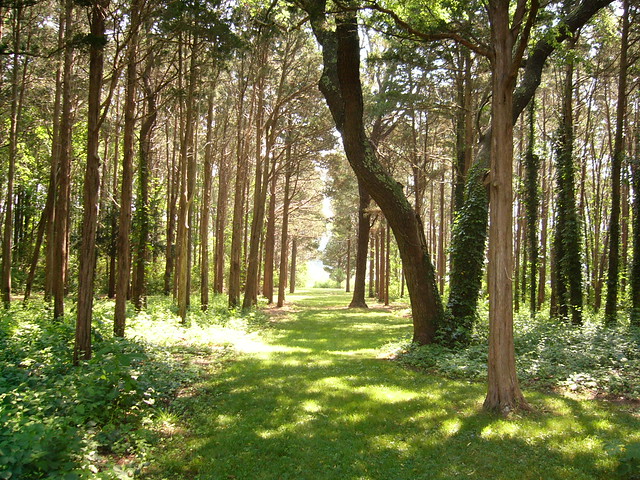
A friend of mine has a Cape Cod house, and hosts a writer's week every summer. Everyone picks a spot on the property to work; above you see one of my favorites. A bayberry tree obscures the entrance to this path; a cedar partly blocks the other end. The two trees become defining authorities of this space. I couldn't get a good shot of the bayberry, but you see the cedar standing to the right of the opening at the path's far end.
Here it is a little closer:
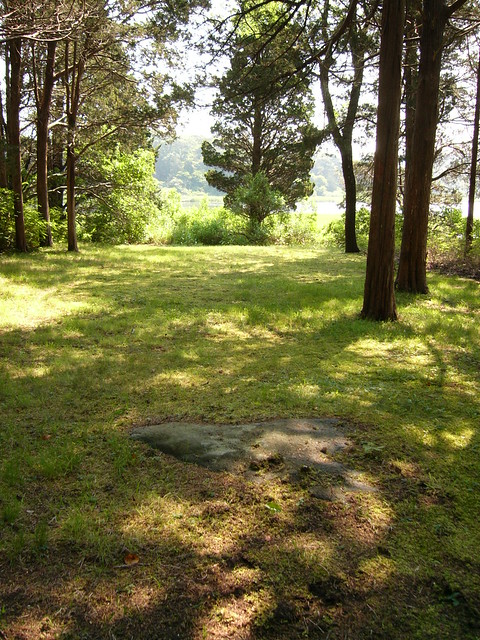
And see that rock, surfacing in the path, like a cetacean's back? My semi-busted lawn chair--and notebook--and the pens that will spill from my pocket--orbit its gravity. You need something to tell you where you are, and this rock says, You are here. Lying low, it seems mellow and unassuming. But don't be fooled. This rock is also saying Me and my chums have been giving New England farmers a hard time since the first plow showed up here.
So: this stately path, with the bayberry tree and cedar at either end, and the rock in the middle, leading so graciously from the back of the house toward the water (into which the dock rotted years ago) was cut by my friend's father. But my friend's mother carved paths of her own through the woods to the side of the house, when she was a child--before she ever met the man she would marry--
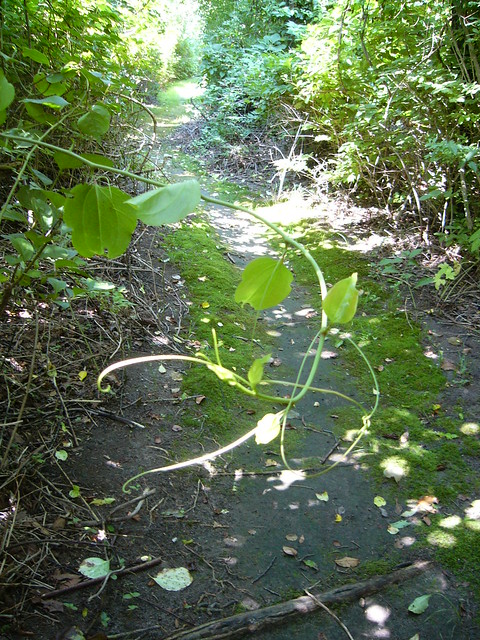
and these other, older paths have an entirely different character.
Though small, the woods on the side of the house seem like a borderless wild. Crows in spindly pines lend a note of menace. The paths that meander here form a loose triangle--a triangle that spawns other paths at its corners, prompting me to imagine a forest of decorous, localized infinities.
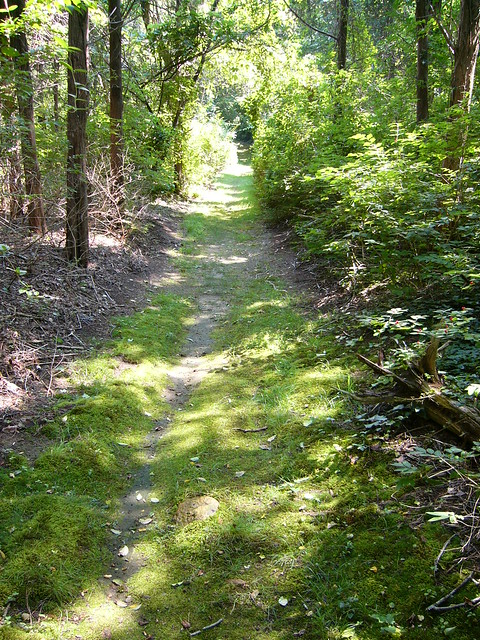
This is the kind of wood where Alice might forget her name, till startled into memory by a panicked fawn.
The crisscrossing paths can take you through the woods--if that's what you want--but they seem more designed to take you into them. Following the lines of this triangle through the trees, branching off toward the water or the lawn, and then swinging back in toward the center, I feel like a child myself. The paths teach me to wander. The woman who made them is old now--but the brisk intelligence of her childhood lingers here.
If you could be here long enough, and be still enough, and be in the right frame of mind, you might be permitted to see--
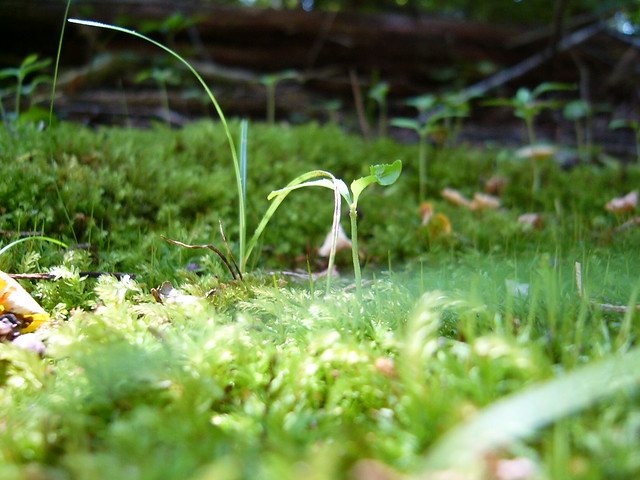
--who knows? I don't stay to find out--I like to remember the imaginative possibilities of childhood--not be subsumed by them. As a child I stepped intrepidly into fairy rings--those mushroom circles that are supposed to be doorways to other places--hoping to be swept into magical realms. But as an adult I remember how many fairy legends involve placating fairies, or warding them off entirely.
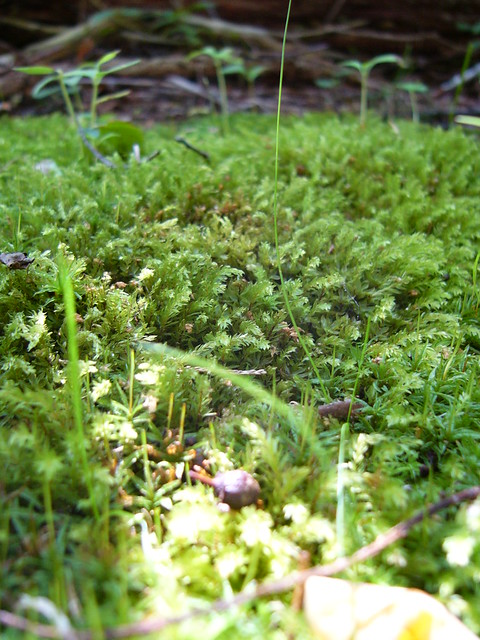
My feeling toward the other realm, if there is one, may be best summed up by Robert Frost. Good fences make good neighbors.
(The farther you are from the pagan world, the easier it is to romanticize it.)
At the end of the main path--the one will take you through, instead of into, if you choose it-- three stones stand. The stones define the end of the path, becoming an ellipsis that separates the shady woods from the bright, dusty road. The stones have so much personality--I took more photos of them than I normally take of my relatives.
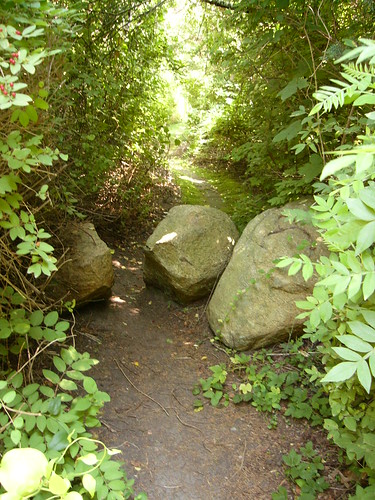
They remind me of three spinster aunties--spinsters in the ancient sense of that word--who might nudge you forward-- encourage you along--and then quietly remind you when you had gone too far.
